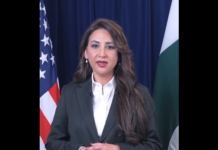The International Monetary Fund team led by Ernesto Ramirez Rigo held a virtual discussion on October 4 – November 18, 2021. In the context of 2021 Article IV discussions and the sixth review of the official transformation plan. The official transformation plan is supported by the IMF Extended Fund Center (EFF).
Pakistan and IMF reached an agreement on the policies and changes needed to complete the sixth review under the EFF. The agreement is subject to approval by the Executive Board; following the implementation of previous actions, particularly in financial and institutional reforms.
Statistical Data: IMF
Completion of the review will result in the acquisition of special drawing rights (SDR) 750 million (approximately $ 1,059 million). Bringing the total amount to approximately $ 3,027 million and helping open up significant support from both international and international partners. IMF released over 1,015 million (approximately $ 1,386 million) in April 2020 to help Pakistan to tackle the economic impact of the COVID-19.
Despite the difficult situation, progress is still being made in the implementation of the EFF-supported program. All quantitative performance capacity (PCs) met with broad limitations, with the exception of major budget deficits. Achievements in the process include the completion of a review of the National Socio-Economic Registry (NSER).
The adoption of a parliamentary amendment to the National Electric Power Regulatory Authority (NEPRA) Act. The information on all quarterly electricity tariff adjustments, and payment of the first tranche of outstanding debts to independent energy producers (IPPs) to open low-cost payments focused on renewable energy purchase agreements (PPAs).
Authorities have also made progress in promoting anti-money laundering and counter-terrorism funding (AML / CFT). Although more time is needed to strengthen its efficiency. On the macroeconomic side, the available data suggests that strong economic stability has been undermined. Benefiting from a multi-faceted policy response to the COVID-19 pandemic that has helped to accelerate human and macroeconomic development.
Federal Board of Revenue’s (FBR)
The Federal Board of Revenue’s (FBR) tax revenue has become stronger. At the same time, external pressures have begun to emerge from the increase in the current account deficit and the downturns of the exchange rate reflecting mainly the combined effects of strong economic activity, a combination of growing macroeconomic policy, and higher international commodity prices. In response, authorities have begun drafting policies, including gradually rolling out COVID-related renewal methods.
State Bank of Pakistan (SBP)
State Bank of Pakistan (SBP) has also taken appropriate steps by initiating a reform of the residential monetary policy, intensifying some of the most prudent measures to accommodate consumer debt growth, as well as providing further guidance.
In addition, the government plans to introduce a package of financial measures aimed at small reductions in key shortfalls related to the previous financial year based on high-level revenue measures to make the tax system simpler and fairer and prevent wasteful spending, while fully protecting public spending.
Policy Framework
These policies will help safeguard the positive outlook of the near future, with growth expected to reach, or exceed, 4% in FY 2022 and 4.5% in the financial year thereafter. However, inflation remains high, although it should begin to see a diminishing trend when the rupee depreciation passes, and the temporary supply constraints and pressures of the demand side disappear.
Also, the current account has the expectations to expand this financial year despite some causes. Like exports of imports, reflecting rising demand for imports and international commodity prices. However, this economic outlook continues to address high domestic and external risks, while the challenges of real estate economics continue.
In this regard, and looking beyond the immediate future, the talks also focused on policies to help Pakistan achieve sustainable and sustainable growth for the benefit of all Pakistani people. On the monetary side of monetary policy, staying on track to acquire basic reserves is still important in reducing high public debt and financial risk.
Ongoing efforts to increase the tax base by eliminating special tax administration and exemptions will help produce much-needed resources to maximize significant social and development spending. Monetary policy needs to remain focused on curbing inflation, maintaining exchange rate volatility, and strengthening international reserves.
Economic Stability grows: IMF
As economic stability grows and the independence of the SBP strengthens through the adoption of the SBP Legislative Amendments. The central bank must gradually advance the preparatory work to formally adopt a medium. Forward-based inflation targeting (IT) system. While other important IT features already exist, including the purpose of medium-term inflation and funding constraints. Additional efforts are necessary, in order to improve the SBP’s framework and strengthen transfers and communication.
Advancing the energy sector transformation strategy, agreed upon by international partners, is important to bring the sector into a financial position. It is also important to address the potential negative impacts on the budget, financial sector, and the real economy. In this regard, the robust implementation of the Credit Management System (CDMP) will help to facilitate strategic management development. The implementation of the CDMP will also facilitate cost reduction, timeliness compliance, and cost recovery rates. Finally, CDMP implementation will facilitate better management of grants for high-risk individuals.
Significantly reducing the cost of providing electricity, however, will require a modern electricity policy: ensure that PPAs do not place a heavy burden on end-users, facing poor and expensive generation mix. The electricity policy also includes wider use of renewables; and introduces more competition.
Accomplished and intelligent Economist with a significant amount of expertise in International Trade & Finance







